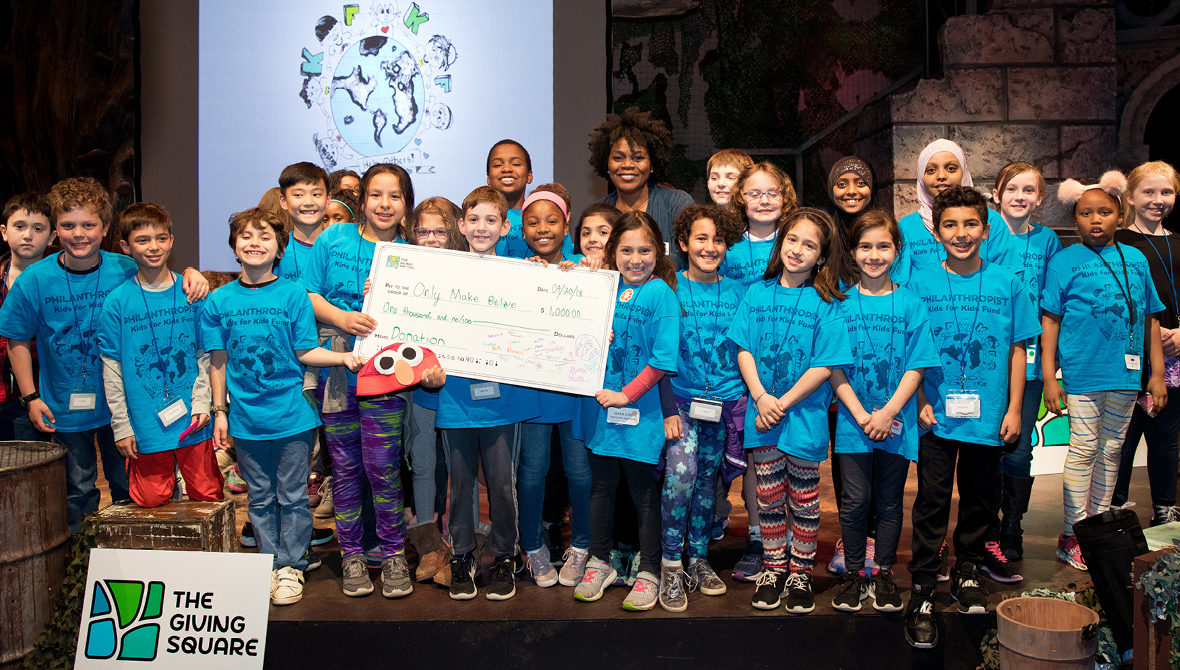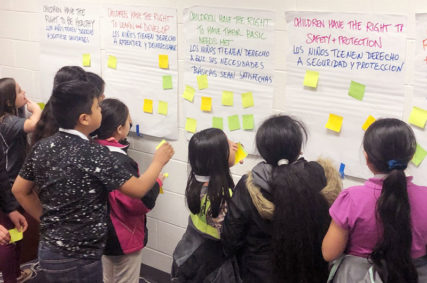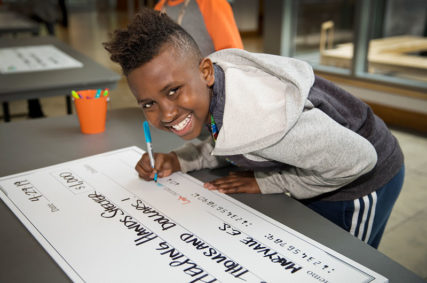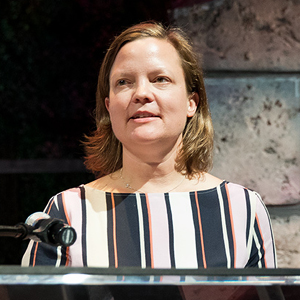Kids Are Philanthropists, Too!


We humans — and within the philanthropic sector specifically — naturally resist change.
Yet, in the shadows of COVID-19, we have the opportunity to set a new course for society. “Historically pandemics have forced humans to break with the past and imagine the world anew. This one is no different. It is a portal, a gateway between one world and the next,” states Arundhati Roy (2020).
For years, the philanthropic sector has expressed intentions to become more participatory, equitable, impactful, and trust-based. Yet in spite of good intentions, the sector has continued to hold onto old ways of doing things. This moment is different.
According to a recent Monitor Institute (Kasper et al., 2021, p.4) report, “At this transitional moment, the potential for accelerating change goes beyond just the social and environmental issues that philanthropy aims to address; it also applies to the practice of philanthropy itself.
This is the moment for philanthropy to change, yet without new ways of thinking and doing, we will fall back into the old familiar ways of operating and this moment of opportunity will be lost. For this philanthropic evolution, we need children.
When we think about philanthropy, we don’t think about children. We picture the Rockefellers, Bill and Melinda Gates, Oprah Winfrey, or MacKenzie Scott. The images that most likely pop into our heads are of oversized checks, galas, and transactions involving large sums of money. This is a sad testament to our own lack of imagination about what philanthropy is, can, and should be.
When we think of children, we picture lemonade stands, the collection of canned goods, and the donation of old toys. We do not see philanthropists. Even though adults are desperately trying to engage children in doing the right thing, we continue to message that children are only capable of gestures of kindness and the collecting of things.
Our work at The Giving Square aims not only to enrich how children see themselves as philanthropists but to broaden our society’s understanding and practice of philanthropy.
To that end, we dedicate ourselves to continually enriching our pedagogical practice and evaluating the impact of our work. While the pandemic challenged us to adapt to school closings, mask-wearing, and social distancing, it has also reinforced our own sense of “the urgency of now” in reimagining philanthropy and recasting the next generation as philanthropists.
This video was created by The Giving Square in partnership with leadership and artists from Youth Art for Healing to explore how the creation of art can be used to help others and ourselves.
When we keep the role of children small and transactional, we send the message that children do not have a role to play. In our informal polling of kids at community events in 2019 (Neugebauer, 2019), less than 45% of them reported that they feel like they matter to the community. Unfortunately, kids don’t see themselves as philanthropists, either.
It turns out that children are naturals at philanthropy. Having worked with over a thousand 8- to 12-year-olds across socio-demographics through our work at the Giving Square, my colleagues and I (and our community partners) see that kids have a great capacity to contribute to their communities.
Children are naturally empathetic at this age. They are fluid thinkers and optimists. They are also keenly aware of situations where life is not fair. When we imagine what philanthropy should be, we actually see that children are the most natural at acting out of empathy, fairness, and humility. This “better way” we want to build in the field of philanthropy, is the way of children.
Since our first pilot in 2017, The Giving Square has been collecting evidence that kids are philanthropists, too. We know it because we have seen how children of all backgrounds interface with our programs. We believe it because we see that with the right tools, frameworks, and experiences, kids embrace their potential and capacity as philanthropists. They start their philanthropic journey early and they embrace this identity as part of who they are….all the time.
As we engage children in philanthropy, we do not teach them the superficial tactics of the past. Rather, we connect them to the version of philanthropy that we want to evolve into.
Here is how we do it (and you can, too!):
According to 2021 surveys of participants in our programs (The Giving Square, 2021), the biggest barrier to children being philanthropic is that “adults need to get out of the way.” What happens when we do? Kids surprise us with the complexity of the issues they care about (bullying, climate change, systemic racism). They inspire us with their creative solutions (using tools we have never heard of!). They present us with new possibilities. In our work, we approach youth engagement with the expectation that we, the adults, have a lot to learn.


What if the philanthropic sector embraced children as philanthropists? What would happen if parents saw the true contributions young people could make to society? If the idea that kids are philanthropists became mainstream:

Body, A., Lau, E., and Josephidou, J. (2019). Our charitable children: Engaging children in charities and charitable giving. University of Kent; Canterbury Christ Church University. http://oro.open.ac.uk/70083/1/our-charitable-children-research-report-April-2019.pdf
ELPIS. (2021). History of Philanthropy. http://www.elpis.org.gr/history-of-philanthropy/
Kasper, G., Marcoux, J., Holk, J., & Morshed, J. (2021). What’s next for philanthropy in the 2020s: Seeing philanthropy in a new light. Monitor Institute by Deloitte. https://www2.deloitte.com/content/dam/Deloitte/us/Documents/about-deloitte/wn4p-report-final.pdf
Merriam-Webster. (n.d.). Philanthropy. Merriam-Webster.com https://www.merriam-webster.com/dictionary/philanthropy
Neugebauer, A. (2019). Do I Matter Public Survey [unpublished data]. The Giving Square.
Neugebauer, A. (2021). Kids for Kids Fund Post Student Survey [unpublished data]. The Giving Square.
Roy, A. (2020, April 3). The pandemic is a portal. The Financial Times. https://www.ft.com/content/10d8f5e8-74eb-11ea-95fe-fcd274e920ca